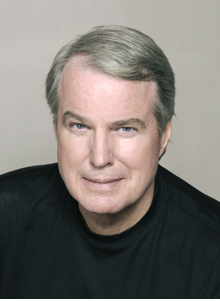

WHAT'S REALLY IMPORTANT
The more you are keenly interested in what you do, the better your chances of success. It really does not matter what you do — what counts is how much you enjoy what you are doing.
Early on, attempt to identify the field of endeavor or occupation that gets you truly excited, that turns you on, that grabs and holds your attention. Is it cars, fashion, magazines, the restaurant business, teaching, construction, finance, electronics, computer games, engineering, medicine, scientific research, acting, music? Search for that one area that really kindles your passion and best uses your talents.
As Steve Jobs, co-founder and twice CEO of Apple, said in his Commencement Address to the 2005 graduating class at Stanford University:
You’ve got to find what you love … Your work is going to fill a large part of your life, and the only way to be truly satisfied is to do what you believe is great work. And the only way to do great work is to love what you do. If you haven’t found it yet, keep looking. Don’t settle.
When you find your passion, become totally committed to mastering it. Learn everything you can about it. As far as possible, get the education you need to practise it. Identify the true masters of the “craft” and study what made them so successful. Immerse yourself in understanding the nitty-gritty of your field, what makes it tick, the basic nuts and bolts of how it works.
Research the leaders in your field in terms of companies, employers or organizations. Where are they located? Are they currently growing in size or are they struggling? What is their reputation as employers, competitors and industry innovators? Which ones would you be proud to work for? Then, make every effort to be hired by one of these leading organizations.
When you start work, how much you are paid is less important than the extent to which you will have a meaningful work experience, receive valuable training and be offered worthwhile future opportunities for advancement. Try to find knowledgeable individuals in the organization who can serve as mentors in guiding you on your job performance and future career.
Even if your ultimate objective is to have a business of your own, you need to gain as much practical experience as you can beforehand, hopefully from the best in the business. It is usually advantageous to have someone else paying for you to become a master of your passion before you attempt to launch your own business.
In following your passion, keep in mind the necessity to constantly upgrade your skills and become as adaptable as possible. The more you develop a specialized skill and enhance it with additional expertise and knowledge, the more you will be in demand in whatever field you pursue. To remain relevant and adaptable, it is important that you “learn how to learn” and keep at it throughout your life.
At the age of 31, my career passion became retailing, specifically the do-it-yourself (“DIY”) sector of the home improvement and building supplies retailing industry. For the next 17 years, I totally immersed myself in the art and practices of retailing. This included subscribing to seven or eight retailing trade magazines; developing close relationships with the best financial analysts covering the retailing industry in the U.S., Canada and the U.K.; reading investment reports on the leading retailers; and closely studying on an on-going basis the most innovative retailing organizations such as WalMart, Toys ‘R’ Us, The Price Club, Costco, The Gap, The Limited and Ikea. Whenever I traveled, I visited the newest stores of the best companies in all areas of retailing, including when I was on holidays.
To say I switched myself into a constant learning mode on the subject of retailing would be an understatement. Every year I attended a retailing conference sponsored by large U.S. investment firms, universities or retailing consultants. I also voraciously consumed various books on retailing, including one on what went wrong at Sears.
Most important, I formed close friendships with the senior people at the leading companies in the DIY retailing sector and visited them regularly. Two such individuals, Bernie Marcus at The Home Depot and Robert Strickland at Lowe’s, in effect became my mentors and were a fabulous source of advice and support for me. This gives you some idea of how I pursued my passion for retailing.
CONTENTS
- The Right Mind-Set
- Follow Your Passion
- Healthy Relationships
Relationship Boosters
Relationship Blockers
Personal Communications - Friends
Lasting Friendships - Couples
Wanting to be a Couple
Dating
Online Dating
Dead-End Relationships - Marriage
Achieving Happy Marriages
Weddings - Family
Children
Teenagers
- Ethics
- “Success”
- Your Mental and Physical Wellness Nutrition
- Keep Financially Fit
- Faith
- Dare to Be an Independent Thinker
- Become an Interested Individual
Internet News
Read Books
Education Smarts - Holidays
- Giving Back
Overweight
Sleep
Doctor Recommendations
Medical and Health Info
Reading and Texting While Walking
